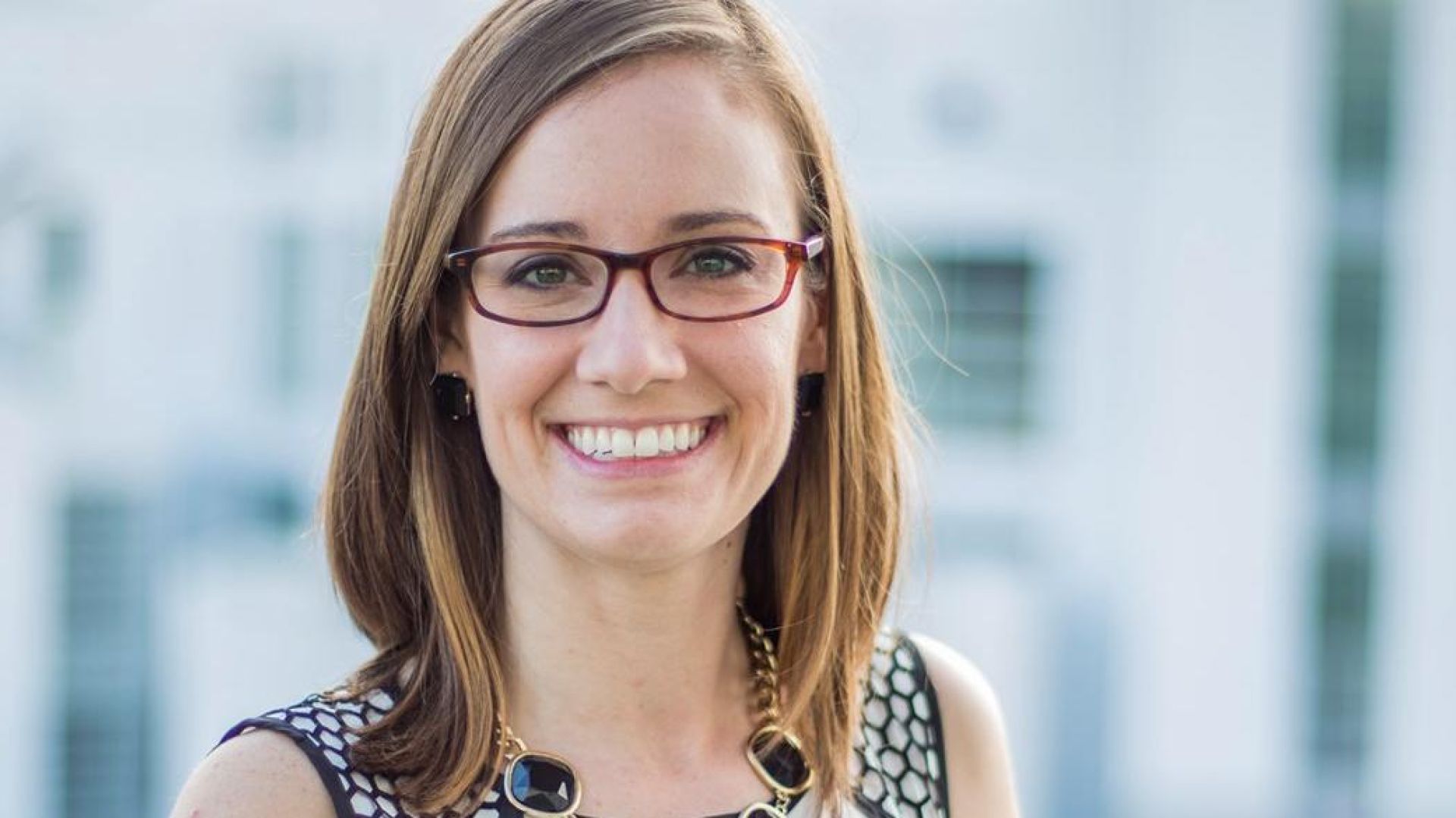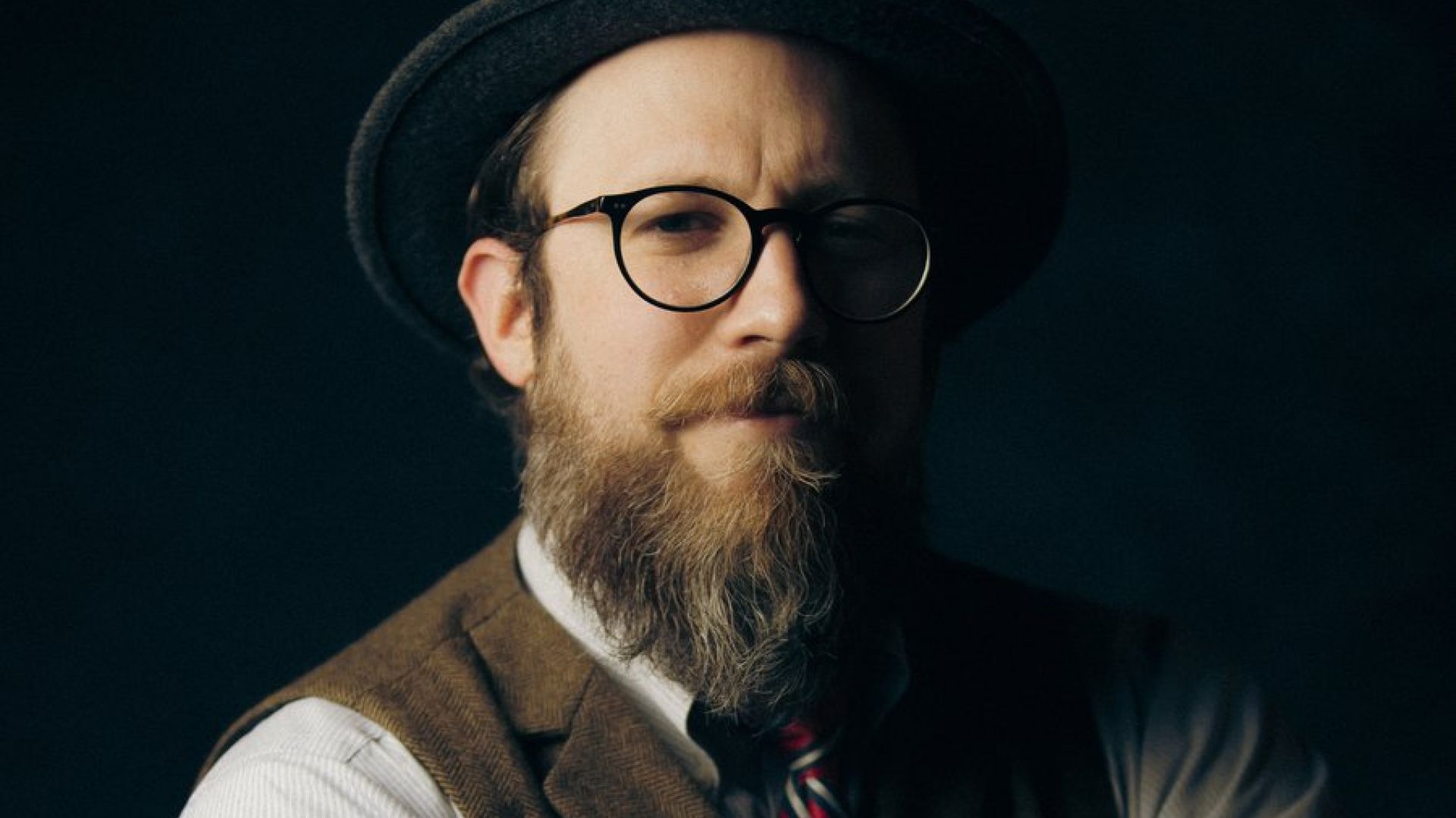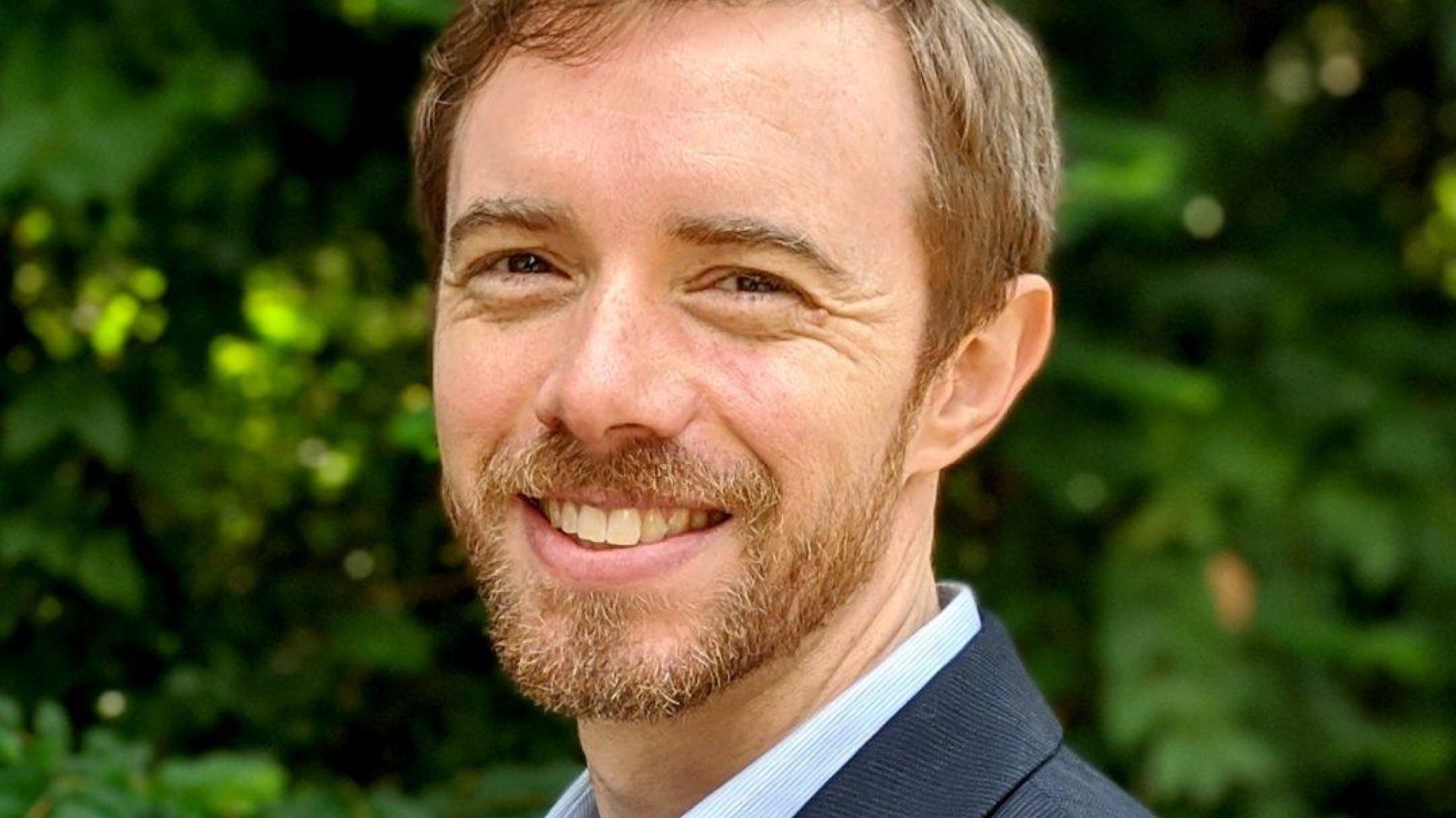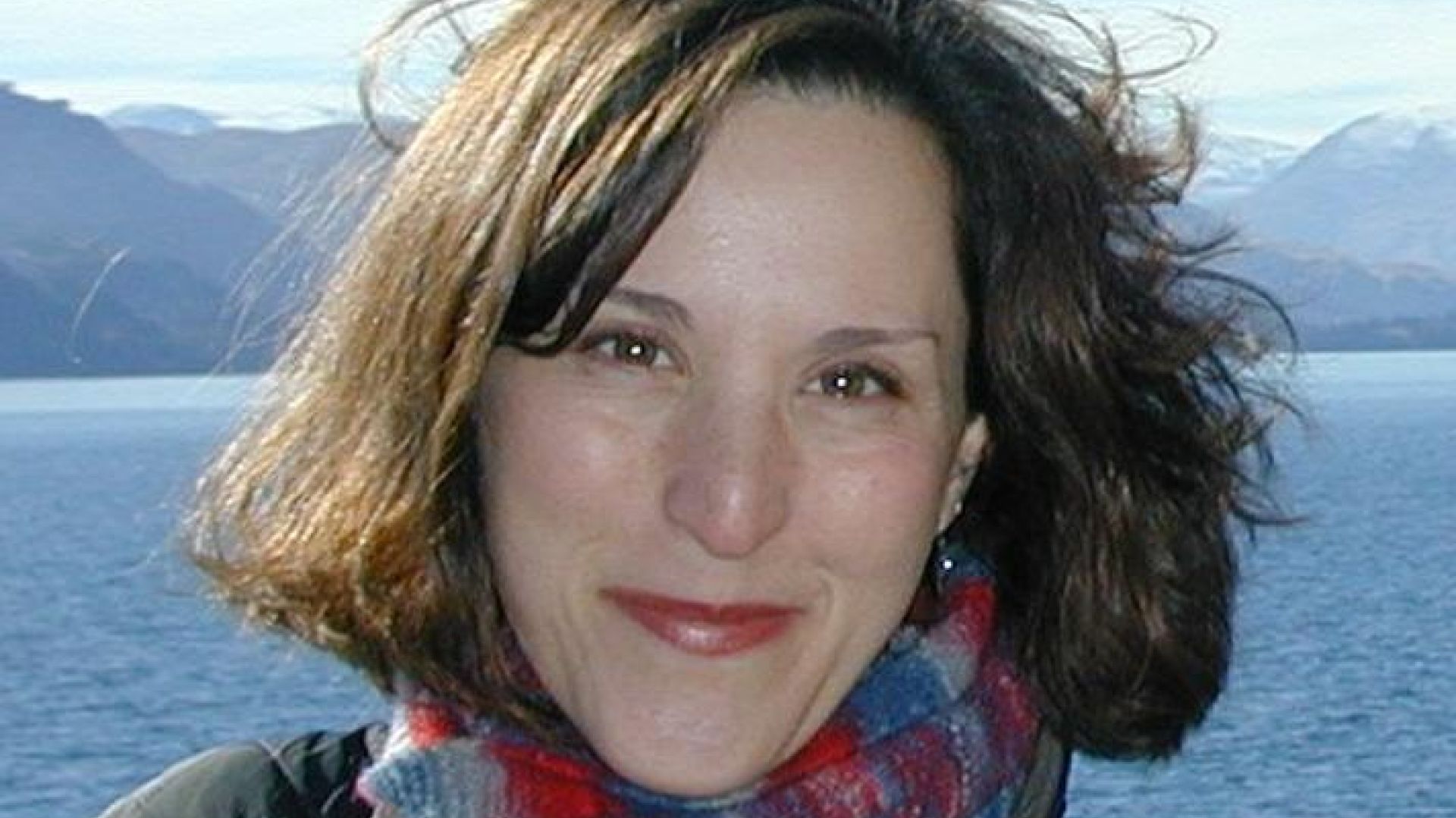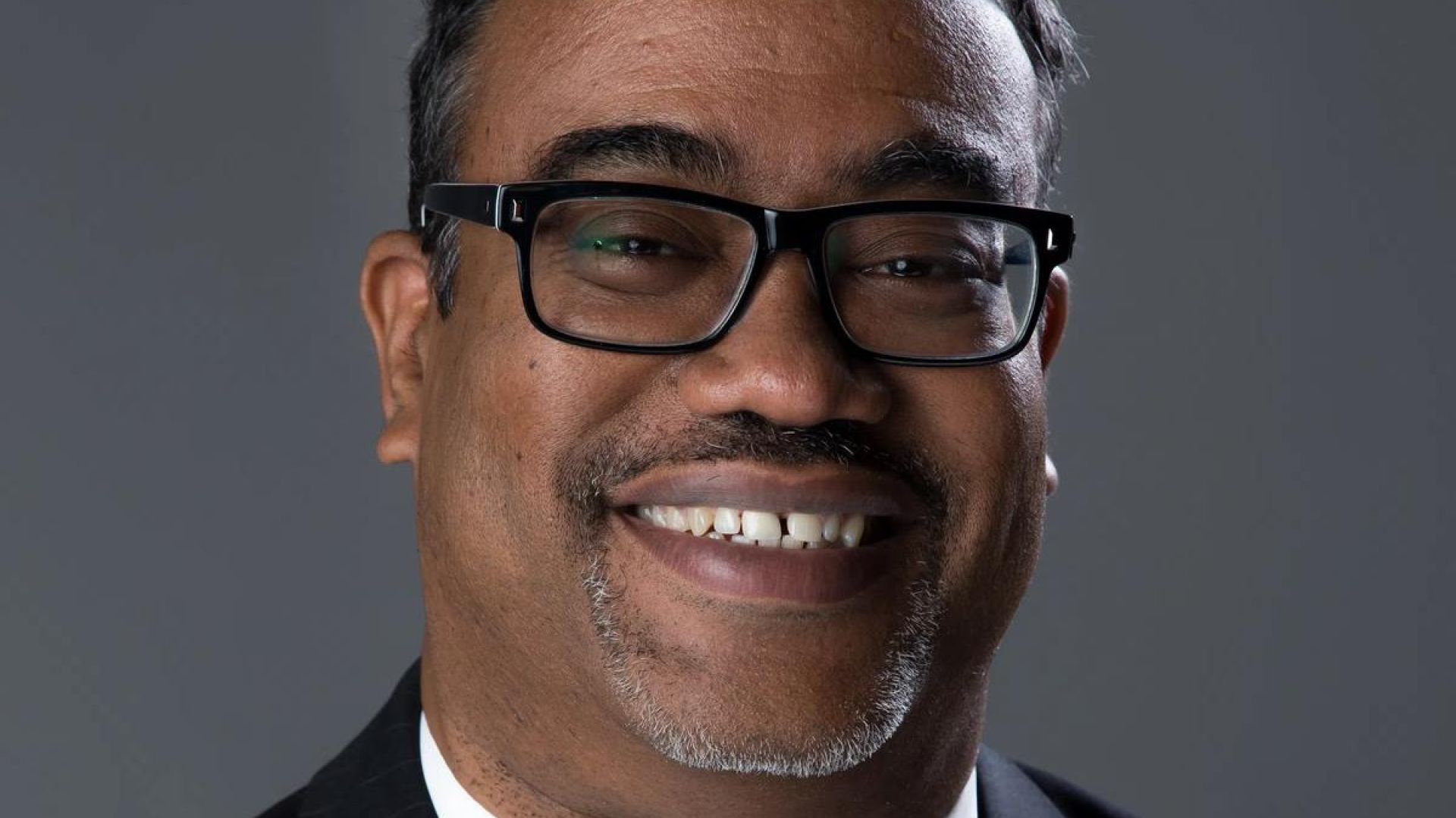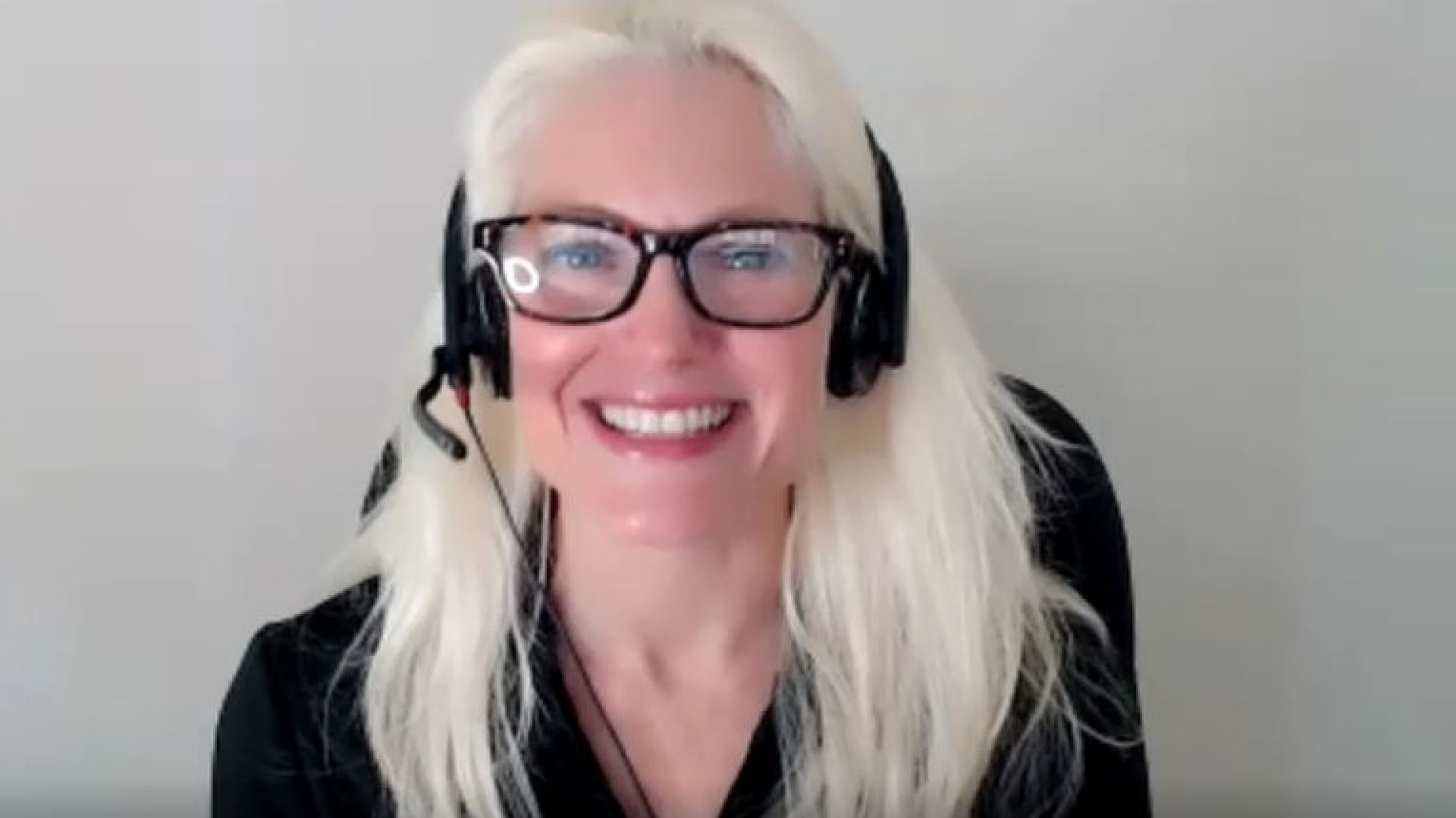
How to Stay Focused & Finish Your Book! With Denise Renee
Do you dream of writing a book, but something holds you back?
Maybe it's the **fear** of not being "expert enough" or not having "great writing skills." You might even tell yourself you're "too old, too young, too this or too that." It's a common struggle, and it can take years to get your work done.

Life is Hard. Business is Challenging. The World is Uncertain.
Leaders, freelancers, and entrepreneurs: Get stories & systems, for navigating the challenges, in your inbox.
But what if the very act of writing could change everything for you and your business?
This Listen to Learn episode of the Share Life podcast with Denise Renee reveals why most people get book writing all wrong.
You'll discover:
- Why your book is **not for everybody** (and why that's a good thing).
- The "house of cards" you might be building is holding you back.
- How even "professional writers" face the same fears you do.
- The surprising reason your *first* book might not be what you think.
Are you ready to stop holding yourself back?
Watch the full discussion with Denise Renee now to uncover the truth and move from fear to finished!
P.S. If you’ve felt like giving up on your book, you're not alone. We'll show you what works.
- Watch: Click here to watch this discussion on YouTube directly, or click play on the embedded video above to begin streaming the interview. Click here to subscribe to my YouTube channel.
- Listen: Click here to listen on Spotify directly, or click play below to begin streaming immediately. You can also find this discussion on Pocket Casts, iTunes, Spotify, and wherever you listen to podcasts under the name Share Life: Systems and Stories to Live Better & Work Smarter or Jason Scott Montoya.
Connect With Denise Renee
- Connect with Denise Renee >>> Website - YouTube - LinkedIn
- The Four Steps to Writing Your Book >>> Website
- The Writer's Toolkit | YouTube Playlist
Podcast Episode Transcript
Denise Renee (00:00) Some people will love your book, right? Other people will be like, "Meh." And other people are like, "I can't stand it." We have to be ready to do this all of the above. It's not fun, but the only way through is through. Stay focused on who you're here to serve. Jason Montoya (00:07) Welcome to a "Listen to Learn" episode of the Share Life podcast. I'm Jason Scott Montoya, and today I'm speaking with Denise Renee. Denise Renee, say hello. Denise Renee (00:10) I'm glad to be here, Jason. Jason Montoya (00:12) Denise is an author and a book writing coach. She works with professionals, entrepreneurs, content creators, spiritual leaders, and religious laypeople to help them finish their authority books, finishing their book that they've started. She's got a guide, "Four Steps to Write Your Book." We'll include a link to that in the description if you're interested. To get us started, tell us, what is it that holds people back from writing a book? Even though so many people seem like they want to or say that they want to, what is it that's holding them back? Denise Renee (01:38) Honestly, the biggest thing that I find that holds people back from writing a book is fear. Since I've been helping people very specifically with writing their books since 2018, there's a number of fears that I hear people tell me a lot, and I actually wrote a book about it. It's called Write Your Book: 10 Mindset Hacks to Move You from Fear to Finished. Jason Montoya (02:14) It is recently in pre-launch. Denise Renee (02:14) It is recently in pre-launch. I'm still finishing up my last bits of edits and getting ready to record the audiobook and all that. But I'm definitely at a point where I'm at the pre-launch. So when people get the pre-launch, they get the first couple of chapters as a digital download and audiobook. Jason Montoya (02:18) Yeah. And what's the name and subtitle of that book, in case people are interested? Denise Renee (02:43) It is called Write Your Book, that's the title. And the subtitle is 10 Mindset Hacks to Move You from Fear to Finished. Because ultimately, people are holding themselves back. I will be honest, I don't write this book as a preachy, know-it-all writer. It's taken me six years to get my work done. Why? Because of fear. Even though I've been a professional writer, I've been paid to write and edit since 1999. I've loved writing since I was about eight or nine years old. I started writing short stories in junior high school. I was writing poems in high school, was writing music in college. It's just been a love, and it's just been something that's carried me through. I fell into copywriting. Writing is not necessarily my particular issue, but there's something about becoming an author, crossing those burning sands, so to speak, freaks people out. A lot of times people feel like, "Well, I don't feel like I'm enough of an expert to be an author." Cause you know, I work with business people primarily. They may feel, "Well, I may not have the great writing skills to be an author. I may not have been in business long enough to be an author. I may be too old, may be too young, I may be too this or too that." And so we're telling ourselves all of these different things and holding ourselves back meanwhile. I think there's also a perception, especially now with social media, that if you are not the New York Times bestseller, if you don't make a post and it goes viral and explodes in book sales, it somehow equates to you've failed. And that's not the case. The thing is that every book is not for everybody, right? That is the thing that I hammer home all the time. Your book is not for everybody. If it's for everybody, it's for nobody. There's a specific audience that is intended for your book. You're sharing something, especially as business owners, we're sharing some kind of solution. We're sharing some kind of methodology. We're sharing some kind of encouraging success story. "Hey, I did this so you can do it too," or "I helped these clients do this so you can do it too." So there's a specific audience for that. As long as you're reaching that handful of people who fit into that bucket—and handful, right? It could be thousands of people, right? And it also goes to what are your goals for your book? Are you looking to get more clients from your book? So if you're looking to help, let's say you are a coach for local handy people just to grow their local business. Your book is not going to apply to electricians. It's going to apply to other handy people. So that's your target audience. And where do your people hang out? Maybe there's a statewide association for a licensing board or something like that. So you go to those places where those people are, market your book, and you share how you help people grow their local businesses, whatever your methodologies or tactics are, and that's it. And so you're getting now, you're making sales on the book, you're introducing yourself, who you are and what you do. And then now you're getting client leads and clients coming into your business who are going to pay you more. So it's not just about the sale of the book, but it's also about the opportunities that come on the backend. Whether you are looking to get the clients in our handy person example, or maybe if you're a spiritual leader, maybe you are not necessarily looking to make money, get rich—not that there's anything wrong with money because you need money for the mission, whatever the mission is, you need money for it, right? So maybe you're looking to enroll people into a particular idea, and you're looking to spread your message. Still, your message is for a specific group of people, and it's for a specific group of people who are going to hear it from you because it's also who you are, your life experiences, the way that you frame things, your perspective. There's people who are going to gravitate to you because of who you are. It's just like you have 159,000 different diet books on the market, but people gravitate towards a particular methodology and they'll gravitate towards a particular personality of whoever that author is. So all of those things make up success when it comes to writing a book. So you really have to look at success differently. Forget about going viral. Forget about trying to appeal to everybody. If you are reaching the right audience that you're looking to reach with your book and you're getting the results that you want—the new clients, the opportunities for media placements or things like that—then that's success. Jason Montoya (08:14) Well, let's tease out some layers there. So you mentioned you're on the tail end of writing your book, and you talked about the fear that people have. So what was it for you? What were some of your fear points? And then how did you face them and overcome them? Denise Renee (08:38) Honestly, a house of cards of my own doing. I was thinking about things like, "Well, first, when I first wrote the first draft of the book back in 2019, at that time, I was positioning myself as a ghostwriter." So I was thinking about using a book, I was like, "Okay, I'm over here helping everybody else with the book, I need one for my own business, for my own validation and credibility." And I came up with this idea because I just kept having conversations over and over and over, and people would say, "Yeah, I want to write a book," and fill in the blank. And so there was just these 10 things that I just kept hearing over and over that I wanted to address. So I wrote the first draft of the book. Okay, no problem. And then I sat back and was like, "Well, how is this supposed to give me ghostwriting clients?" And I was like, "Well, that's not really going to lead to ghostwriting clients because as a ghostwriter, I'm writing the book for you. I'm not helping you write your book." Jason Montoya (09:36) You're facing their fear for them as a ghostwriter, right? Denise Renee (09:51) Right. So to me, it was just like, I started talking myself out of it. So then I was like, "Well, maybe you need to write a methodology book, which would explain how I, you know, what's my process for ghostwriting and things like that, so people were comfortable." So I started writing that. So I abandoned this book. I started writing that one in 2020, and it just, I don't know, it just wasn't hitting. And I was just like, and also at the same time, I had come to a crossroads in my business and in life and was rethinking life. I mean, it was 2020. Jason Montoya (10:33) Yeah, and if you're interested in learning more about that, Denise Renee has been on the podcast twice, so you can go back and hear her story. And also we talked about the pandemic and some of the societal political issues that we're servicing at the time and racial reconciliation, so if you're interested, we'll put links to those in the description. But yeah, continue on, go on with for us. Denise Renee (10:46) Yeah, so I was rethinking life and rethinking my business, rethinking if I wanted to do it, if I wanted to do it, how I wanted to do it and everything. So I just, I put everything on pause and I finally figured out what I wanted to do. I'm no longer doing ghostwriting, but I was like, "You know, I do like helping people and I do like teaching." I was like, "Okay, let's pivot this into a coaching so where I can walk you through." Of course, I can still edit. And I'm like, "Okay, editing is not like my passion, but I can definitely lend my skills to people." I like, "Okay, I would rather focus on the developmental editing side, do some light copy editing. Proofreading is not my ministry." Like I don't want to do that. But definitely helping people really understand their words on the page. And one of the things that editing clients have a problem separating sometimes is that they have to separate their emotions from the words that are on the page. "I know when you wrote this, you intended this, but the words on the page are telling me something different," and that is, it's something that's very difficult for people to grasp. But nevertheless, I have the patience, so I just walk through the fire with them. But yeah, so I decided what, you know, what I wanted to do, how I wanted to do it. And I thought to myself, this was like in the middle, right about this time last year, I was like, "You know what, what if I had put that book out then?" It wound up, I went back to the manuscript and I was like, "This book is perfect for what I'm doing now. I was ahead of myself." I do that to myself a lot. And I really had to sit back and reflect. I'm like, "A lot of times you were doing something and you felt frustrated and then you quit, like maybe right at the brink of a breakthrough." And I'm like, "Man, I'm always ahead of my time. Something's on my mind to do, and I was just ahead of my time." So, "Alright, girlfriend, whip it out. Let's dust it off. And let's get back in the fight here." And yeah, so I've been, you know, I started creating content again. I started, you know, just on that journey and started teasing the fact that I had a book, even though it wasn't doing anything over there. I was like, "Yeah, I got a book." That kind of helped. And I did that on purpose because I was like, "I need people asking me about, 'Where is your book?'" Because otherwise, I'll just sit back. Jason Montoya (13:44) Yeah. Denise Renee (13:48) Well, the public scrutiny is not that it's scrutiny, but I mean the public like, "Where's your book? Hey, where's your book? Hey, where's your book?" I was like, "Alright, you know what, let's get this together." And I was like, "You know what, let me do a pre-launch." And that gives me a reason to talk about the book and start selling. And then the fact that money is rolling in, can't slow down. I can't slow down. I have to honor. Jason Montoya (14:10) It's fuel to the fire that keeps the fire going. Denise Renee (14:16) This is my strategy. It's keeping me moving because if I continue—this is just me and a function of my personality. For some dumb reason, when it comes to things for myself, I'm like, "Nah." But when I feel like I'm responsible to people, I'm like, "Show up." And I'm like, "Girl, you need to show up for yourself like that." Meanwhile, while you're working that out, we'll just, you use, let me just lean into my personality and work with it. Jason Montoya (14:38) Yeah, well, I think once you get paid for things, even if it's a little bit of money, I think it does start to do that. It starts to make it where you can then do things for you. Yeah. Because it's self-sustaining, right? Because you have to make an income to support yourself and your family. So there's a couple layers here that I think is very interesting that's worth teasing out. The way you're talking about writing a book is really about a transformative experience for the author, which I think is really powerful. It's not just, you're just getting words on a page to then put it out there. What you're talking about is you're going to become a different person at the end of this process, and I'm going to help you do that. Yeah, it, transformation has a compounding or a domino effect. And I can relate to that, particularly for the current book I'm working on, From the Garden to the Cross. Denise Renee (15:21) I'm still doing some of your business too. Jason Montoya (15:46) Like you don't write a book about Jesus's passion experience without being changed. And that's actually been a giant speed bump because it's just deep, dark stuff at times to work through. So that's a really interesting idea of like the book as a vehicle for transformation. And I think it's really interesting too how that ties into like what you said earlier about the fears in terms of like what people are going to think or how they're going to perceive things. And one of the things that I've come to discover is that the path to success is through the valley of humiliation. Denise Renee (16:27) Jason, why you trying to make me cry off my eye line? Jason Montoya (16:29) Because I want to wear it. Yeah, I need a little over here. Denise Renee (16:35) Yeah, no, there, there is no, even when writing a book, your "idea baby." And those of us who have had the blessing to be able to incubate a human life in their body, and give birth, even though I call mine kind of cheating a little bit. Like when I was, was time, I was in so much pain, I was screaming, hollering. And the doctors, they decided to do a C-section because my heart rate was going up, the baby's heart rate was going down. And they were like, "Nah." And I remember the doctor, normally with a C-section, you're in local anesthesia. Honey, I was screaming so much, they were like, "Knock her all the way out, okay?" I'm done, I don't want to hear her. So I went to sleep screaming and hollering, and I woke up. Jason Montoya (17:32) And my husband at the time was like, "Here's our baby." And I was like, "I did it." Denise Renee (17:47) But nevertheless, whether you get a C-section, whether you get a midwife, whatever, when you birth something, it changes you. There's no escaping it. So it's like the process of giving life to something. The process of giving life to our ideas. It's going to change you and you have to nurture it as well. That's the other thing that I think is so a disadvantage of our culture where it's like if it's not an instant success, if it's not instantly viral, you know, we feel like it's failed. But like no, just like a child, you got to grow that baby up. You have to nurture it. You have to keep, you know, putting it in front of the right audiences and let it grow. And as you grow an audience around that, sometimes your audience will give you hints as, as to what, you know, they want a sibling, right? They want a sibling, and they're going to tell you what it is that they'd like to hear from you next. So yeah, there, there is no, it's definitely a growth process. And while I can appreciate using tools like AI, I don't really, I'm not an advocate for AI generated books, because you're basically plagiarizing off of everything else that's already been done. But I'm all for AI assisted. So I'm helping people who want to pull from their own ideas, who pull from their own experiences, who pull from their own emotional everything to create their books. And even if your experience seems similar to someone else, that you're still a unique person and you still have a unique perspective. And again, there's going to be an audience of people who will only respond to your voice and to the way that you present it. Somebody may have told you, you know, "You need to eat less and move more," 50 million times, but you are the person, you're the 50 millionth and one person, and the way that you said it or something, whatever, it clicks for them. That's what it's all about. So just go through the transformation, use whatever tools you may need, whether it's AI, whether it's working with me or someone like me as a coach or an editor. And that's the other thing. I think people don't think that, people assume that you have to, you know, go off on a mountain retreat somewhere and write by yourself. And while there is a part of writing that is done by yourself, you also need community. You need editors. You need beta readers to test out and make sure that what you're saying is translating the way you want it to translate. Writing is a community process as well because you're looking to put out a product to a community. So unless you're writing a journal, you need help through the process. So you're going to be changed, you're going to be transformed, and you're going to need a community around you to help give birth to your idea baby and you're going to need to mature and grow that baby up and possibly give that baby siblings. Jason Montoya (20:55) Yeah, yeah. So I think there's a really powerful point that you're kind of also talking about, which is you said the book doesn't just transform you, it transforms your business. And so when I went through the Dale Carnegie program, the way that they position it is that they believe that to be a good public speaker, the same values and virtues and skills that are required to be a good public speaker are the same things that are required to be a good leader. So the program is actually designed around a public speaking model. And what it does is it actually surfaces and leans into all those fears that people have that they face as a leader, but aren't as always as pronounced, but as a public speaker, they become very pronounced. Denise Renee (21:48) It's pronounced. Jason Montoya (21:50) And so the same is true, I think, what you're describing, which is as a business owner, as a business leader, there are things that are holding you back, there are things that you are afraid of. If you go through this book writing experience, you'll get to face and tackle each one of those so that as you overcome them, you'll then be able to overcome them in your business. What are your thoughts on that? Denise Renee (22:11) Definitely. I think we're all hardwired to be afraid of rejection because, you know, in our earlier history, being rejected from the tribe meant you're gone. You're gone. Do not be put outside of the city walls. You're done. Jason Montoya (22:24) Yeah. Sent out on an iceberg. Denise Renee (22:32) So you know, we have that thing where we want to know that we're safe, we want to know that people agree with us, and that everything's cool and that our nervous system calms down. You have to have a mature understanding that some people will love your book, right? Other people will be like, "Meh." And other people are like, "I can't stand it." We have to be ready to do this all of the above. It's not fun, but the only way through is through. And stay focused on who you're here to serve. Speaking of, you know, your book talking about, you know, the passion of Jesus from the garden to the cross, Jesus had to stay focused on the mission. There were some people who loved him on Palm Sunday. Why were they the same people four days later talking about "Crucify him!"? Jason Montoya (23:36) Yeah. Denise Renee (23:36) You're gonna have your supporters, you're gonna have your detractors, and you're gonna have people in the middle who are indifferent. And so just focus on, that's why Jesus stayed focused on the 12, right? He focused on that core group of people that want to change the world, right? So figure out who are those core people that you're looking to assist with your book, with your mission, with your business. Help focus on transforming them so that they can go ahead and transform their world, right? So it's just the transformation in yourself passes on to your readers, passes on to your clients, passes on to other people that they help. Jason Montoya (24:11) Yeah. So one other thing, you mentioned the AI and having like someone having a voice and a perspective. And I think this is really important for people to understand as AI generated content becomes more prominent. The content that's going to get cannibalized or taken over is going to be that generic content. It's going to be that neutral informational Wikipedia type of content. It's going to be because that can, it's facts and information and it's patterns and so that can be done. But where there's an opportunity for people is to step above that layer, which is the easiest type of content to write, to be honest. And to step above that into a perspective and a point of view and stories, having a vision, having your own stories and your own experiences that only you have that makes you unique. Denise Renee (25:13) So. Jason Montoya (25:14) I feel like that's a super important piece and that's also something where if you do use AI, it can help you pull that out of you, but at the same time, it can't replace that part of you. And so you always have that unique facet and that's, I think in many ways, what people want to hear. Talk to us about that. Denise Renee (25:33) Sure, it's what people call in literary circles, your voice. And sometimes people get caught up on, you know, "What's my voice? What's my writer voice? What do I have to say and how do I say it?" I don't stress out about voice too much because I'm just like, "Right, not necessarily write how you would talk because I mean, for me, if I wrote like how I talk, you'd think I was schizophrenic." You know, I have different ways of speaking depending on who I'm speaking to. If I'm in, you know, around my family like right now, my mom's in the Caribbean, you know, hanging out with family. So when I'm in that environment, you hear my Caribbean accent come out. If I'm back in New York, you know, where I grew up, you're gonna hear that rock come out. Jason Montoya (26:30) Okay, yeah. Denise Renee (26:31) But now I'm mostly living in Atlanta. So, you know, you're gonna hear me saying "y'all" and "finna," whatever. So, you know, the way that I speak changes based on, you know, influenced by my environment. So speak how you would speak for the environment that you're looking to be in, right? Be yourself. You can't hide yourself. Who you are is going to come out and come oozing through your pores. You cannot hide. People see, people clock their teeth, right? And yeah, so yeah, I'm kind of hip on Gen Z terms. My son is very interesting because some people put him as the tail end of Gen Z and other groupings put him as the tail, the very beginning of Gen Alpha. Whenever I say something, he's like, "Mm-mm, mm-mm. It doesn't sound good when you say it." I'm like, "Baby, get out of here. Get out. Go." But yeah, so whatever environment you're speaking to, I am writing something for, you know, Gen Z, Gen Alpha, I'm going to be clocking it to you all day long, right? So you want to speak to who you be yourself for who you are looking to serve. It's going to come out. Don't overstress about it. But you need to have your unique perspective. Denise Renee (27:57) I think one of the things that people love about my writing and my personality online is that they feel like, you know, "I'm their homegirl." I've actually taken on the moniker, "I'm your business book bestie" because I make people feel like I'm talking right to them. Like you're talking to a friend and your friend is going to give you this honest advice for writing your book. And you're gonna hear me, you're gonna see the rise and the fall in my voice. You're going to see where I'm like really excited and you know, got my hands going, right? But you're also going to hear when I am like, you know, really serious and straightforward and da, da, da. So you're get all of that dynamic in my videos and you're gonna get all of that dynamic in my writing. It's going to come out. So be yourself. Denise Renee (28:51) And speak to the audience that you're looking to speak to, use their terminology, and just let the chips fall where they fall. Let the words fall where they. Jason Montoya (28:59) Yeah, and it's a lot easier to be yourself and be sincere because you're just being you. And when you have a mask or a facade, it's a lot of energy. Denise Renee (29:07) You don't remember who you said what to. This is why I don't practice lying because I'm just like, "I don't remember what I told you." So if I tell you the truth, everywhere I go, you know, I'm going to be consistent. And that's what are looking for mostly today. My God. Consistency and integrity. Be yourself, whoever you are. Be yourself everywhere you go. Jason Montoya (29:50) Now, you started down this YouTube journey last September. I got serious in January, so you're a little older than I am on YouTube months. What has YouTube taught you about writing books? Denise Renee (30:00) Well, I don't know if I would say it's taught me something about writing books in particular, but definitely it does help me be consistent. It does help me to think about my audience. It does help me to think about, "How do I increase my reach? Who am I looking to reach? How do I get that message to more people of the types of people that I'm looking for?" And it's, are the same questions that I do have to ask when it comes to marketing. Book was this for, how can I get this in front of more people like them and what they kind of tuned into? What's the language that I need to use to speak to them so that they hear what I have to say and decide whether or not I'm for them. And my book is for them or my contents for them, because for me, it's all a flywheel. It's all part of the same ecosystem of marketing and branding me personally and marketing and branding my business. The book feeds the YouTube channel, feeds the client lead acquisition, feeds the business, feeds me and I feed it all. Flywheel. Jason Montoya (32:21) Yeah, and if you build that monetization layers in there, then you can just keep spinning faster and faster. Yeah. Talk to us about frameworks as a starting point for writing a book. Denise Renee (32:29) Yeah, it just keeps reinforcing itself. Okay, so I think I may have said earlier in our talk that a lot of times people think that you just, and I blame Hollywood for this, whenever you see a writer, they just sit down, they crack their hands, they pull out a pen and their notebook or what have you, and they just seem to start writing in this flow. Sex and the City, because the main character, Carrie, was a writer, so she would always, you know, start talking and it was like part of the pieces that she would, because she wrote this column for the New York paper, whatever paper it was, or magazine it was. So, you always see her just sitting there, just, you know, thinking, contemplating, and just writing, and you know, it just seemed so easy and so effortless. And there are times in writing where it's very easy and effortless and you're very much in flow. But there are other times where you're just like, "What am I writing?" So the most successful writers and especially I would say the most commercially successful writers, people like James Patterson. I think he's sold more books than anybody on the planet. Why is it that every book kind of sounds the same, right? The plot is pretty much the same. Characters are different, settings are different, the scenarios are different, but pretty much, same thing for Summer Blockbuster, same thing for sitcoms. You have the same beat, why? Because there's a structure to follow. There are frameworks. In non-fiction writing, they're called tropes. So that's why every billionaire romance book sounds the same. That's why every. Jason Montoya (34:33) Yeah, there's a formula, there's something people like, they want more of that and they just want more versions of it. Denise Renee (34:40) So starting with a framework, and I like to call it frameworks for non-fiction books. Starting with a framework that you know already works in the marketplace. It's like GI Joe, knowing is half the battle. Jason Montoya (34:56) And this is actually something, as I'm getting into YouTube, there's YouTube frameworks. YouTube title frameworks, YouTube thumbnail frameworks, YouTube idea frameworks. And if you use them, you're going to be more successful than if you don't. Yep. Denise Renee (35:11) You know, in copywriting, what people are calling hooks, these are your headlines. It's basically your headline, right? It's the thing that grabs that attention and then pulls them all the way through. So writing is not necessarily about coming up with everything 100% original. Your scenario is original, but your framework, you want to build on a successful framework so that you don't feel like you're starting from scratch. And you know that you are writing something that people want to know about or hear about. So that's why, you know what, if you write a diet book, you're probably going to be successful at it because people are hungry for that type of information. So the most popular frameworks that work very well for nonfiction books are how-to books, methodology books, and success storybooks and some kind of hybrid or blend of those. And even when you are writing your story, because that's another thing that people tell me a lot, "I want to write my story." I'm like, "Okay." And I get a little nervous for some people because I'm like, unless you are a big celebrity or a political figure that people already know, you're like a household name. Those books sell well because people are hyper aware of them and they're interested in them. So they want, you know, a memoir or something like that from them. But if you're just regular Joe Schmo, unless you are some, you know, a senior level leader of a publicly traded company or a very popular company, like I think of Sheryl Sandberg with her book Lean In. At the time she was, I don't know if she's still at Facebook, but she was, you know, an executive at Facebook. So just the fact that even though we didn't know her name, that she was associated with Facebook. And then she writes this book, boom, it's instant credibility and instant fame for her. So for most people, we're not working for a company like this book. People don't know us from Adam. So you have to just kind of position your story in a way that they would want to receive it. So, you know, if you have like, exactly. So if you have kind of like more of a roller coaster success, kind of, you know, where, there's a lot of highs and lows in your story, but you came out ultimately successful, then put your book in that type of format. If you have more like the rags to riches type of story, put it in that framework. Or if it's like, maybe, you didn't do anything, you know, it wasn't all those highs and lows, but you came out learning some really interesting principles, then make the principles kind of like the forefront. Let people know what is the value that they're going to get from this. Denise Renee (38:05) And then your story just becomes the delivery method for sharing those principles. So those are pretty much the six frameworks that work very well. There are other frameworks, but those are the ones that I kind of promote the most because they're easily recognizable and easy to, well, in my opinion, easy to replicate. And so I help people take, you know, figure out, "Which of these frameworks is the best one for you?" And let's plug it into that framework, plug your content into that framework so that boom, now you have an outline, now you know what you're talking about, and now you have a plan, a plan forward for your content, and you're not just like coming to your computer like, "What am I doing?" That's basically the process that I take people through. We talked about at the top of the interview, through my product there, the "Four Steps to Start Writing Your Book." I literally walk you through that process of figuring out who's your audience, what's gonna be your topic, how does that intersect with your business and your business goals, what is gonna be the best topic that's going to resonate with your audience and for the goals that you have, what's the best framework for your book, and then let's get to outlining it. Let's put a plan together for getting your first draft done. That's what my "Four Steps to Start Writing Your Book" walks you through. Write to DeniseRenee.com/foursteps. Jason Montoya (39:39) And I will emphasize for those of you who have seen the movie The Shining, he did not follow Denise Renee's advice. Yeah, and he, the character in it is a writer. Well, the main character is Jack. He's writing a book. So they go off into this mountain. He doesn't follow Denise Renee's advice and he goes crazy. Denise Renee (39:54) That's Stephen King. Jason Montoya (40:09) So you have two options. You can follow our advice and be successful, or you can follow the way of Jack in The Shining and go crazy. You know what to do. Denise Renee (40:17) I never read people, because Stephen King, I'm not a horror kind of person, but of course I'm aware of Stephen King. I did not know that that was the storyline of that movie. That's hilarious. That's hilarious. Jason Montoya (40:23) Yeah. So, yeah, he goes crazy and then he tries to murder his family. Denise Renee (40:36) It's just, I can't with Stephen King. I can't. That's how I am not his target audience. Jason Montoya (40:38) Yeah, yeah. It's a little too intense. Is there anything, I guess when I think about the frameworks and you kind of hint at this, I guess talk to us about what is your goal for writing or publishing this book? Because that can change maybe which framework you use and even which topic you write about and then even what you're trying to accomplish. It can just shape so many things. Talk to us a little about that. Denise Renee (41:12) Well, I like to start whether through my product, the "Four Steps to Start Writing a Book," or whether I'm working with someone one-on-one. My process is still the same. That is my process. And the first thing is what I ask, "What are your goals? What do you want?" I'm kind of like a liberty of hope. Like, "What do you want?" Right? Because it's like when we know what it is that you want to accomplish, we can then make a plan and work. So I'm always asking, "What are your goals for your book? How do they tie into your business goals? Who are you looking to serve with your business and your book?" Because very likely, if you're writing a thought leadership book, an authority building book, you're looking to get clients or you're looking to do some high level networking within your industry. You're trying to lead the conversation. And you're probably, your end goal is to get, yes, it beats out of Sheryl Sandberg out of her position, right? You want to be the next Facebook or what have you? You want to be a CEO? Or you already are a CEO and you're looking for that next thing or you want to do a startup or something? Whatever you want to position yourself, whatever that ultimate goal is, I need to know that so that we can create the right pathway to get there. And yes, we'll then inform, well, are we telling your personal story? Are we sharing a methodology? That informs how we're going to shape the content. So for me, what your goals are, are first, and who your audience is, is first, and then we help you decide the framework, because putting the cart before the horse is never good results. Jason Montoya (42:54) Yeah, yeah, and you when I think about my books, my first book, Path of Freelancer, I wrote that because my goal was to have a published book. And that was my easiest, that was my low-hanging fruit because I already, as a freelancer, I had the system already developed in my head, I just had to write it out. My second book, The Jump, which is for small business owners that are in chaos or stuck, it was the goal for that was to operate as a business card in a sense for my freelancing work, which it's more than paid off in that regard. So that's great. It's kind of a letter to, I had a marketing agency for about seven years, so it's sort of a letter to me before I started the company. When I work with clients, I want them to kind of go through that transformational experience to become a flourishing business. And really From the Garden to the Cross, I think in a lot of ways is me trying to solve a problem and think through that problem, which for me was, "How come Christianity is so often and so much unlike Jesus? How come we are actually part of the problem that Jesus came to save?" And so I needed to wrestle through that. And that's probably why it's taken so long is because it's not something I have an answer to. I have to struggle and wrestle through it to find the answer. So I've had these different goals. And I think when you talked about your book, when you first wrote it, the goal you had didn't align, but then your business changed and now the goal's aligned. Is that kind of a good summary? Denise Renee (44:33) For my particular book. And you know, I like that you shared that you had different goals for different books. The first book, and it is okay, right? It is totally okay to write that passion project. Or to, like you said, "I just wanted to have a published book," and the easiest thing for me to write about was what I had already been through, which that's the easiest thing for a lot of people to. And that's totally fine. It's just like, boom, you had, said, "Hey, I wanted to be a published author." You did it. Done. Chat. But the second book was more so for like lead generation. And like you said, it accomplished its goal. So, you know, I don't want anyone thinking that, you know, because I focus on helping people write that book, that thought leadership book, that authority building book, that client attraction book. This is what I focus on helping people do. It doesn't mean that you can't write anything else. I come across people who they started out by creating a planner or they started out by writing a 90-day affirmation journal or something like that. What's called a low-content book. That's fine. And they did that because they just wanted to have something out there and say that, "I'm an author." But now they're like, "Okay, I really want something that's aligned with my business. That is specifically what it is that I do." So when you want something that's aligned with your business and aligned with your business goal, I am your girl. But yeah, it's definitely, you can write a book for any reason. And I mean, I write fiction, so, and I have to stay around to publishing that too. But I write fiction because I love it. That's another great reason to write as well. Jason Montoya (46:25) Yeah, that's cool. Well, as we close out here, are there any final words of wisdom or anything you wanted to share about writing that next book that you haven't had a chance to talk about yet? Denise Renee (46:35) I think that when it comes to business books, I would really encourage people to don't think about being a one-hit wonder. When you're thinking about coming up with your idea baby, plan for siblings. Plan for siblings. For several reasons. Number one, you kind of have to create things and the market will tell you what's that breakout thing or what's that breakout book. The market will tell you that. Cause a lot of times when we think, especially like when I, when I'm recording a video, say, "I'm like, ah, this video is, this is going to be great." Publish that thing three days later, 15 views. I'm like, then meanwhile, something that I, you know, recorded on a whim, 2000 plus views. I was just like, "Seriously?" So the market will tell you what it likes and what it wants. So I would just say, prepare to write multiple books on the same topic because it will really help deepen your authority. The process of writing a book, and for the people that are nervous about, "Am I enough of an authority to write this book?" Write the book. Jason Montoya (47:56) Yeah. Denise Renee (47:56) The process, like we talked about earlier, will change you and transform you. The process of writing the book will make you an authority, okay? If you weren't already. So the more books that you have on the topic will help to deepen your audience and broaden your audience as well. And then also I would say, if you don't feel like a writer, because that's another thing that holds people back as well, if you don't feel like, then start writing more, right? And a lot of times I think that it's an identity issue. It definitely was an identity issue for me. If you don't feel like an author, well, you just have to do the things that authors do, where authors write, write more often. And being an author is something, because sometimes you can think that authors are people who only write and are only paid from their books. And that's not the case. You can be who you are and an author. You can be a content creator and an author. You can be a doctor and an author. You can be, you know, a carpenter and an author. So you can add on authorship to any career or business that you are in and it just elevates what you're doing. So I would say plan to write more than one book and write more and get into writing more for the love and the joy of writing. Keep a journal if that. Jason Montoya (49:32) I journaled in my Evernote for about four years before I started blogging. And then I started blogging. So I was building the habit, right? And then in 2014, I started blogging publicly and I blogged. So I published my first book, Path of a Freelancer, in 2017. So I blogged for three years before I published my first book. And I think that's okay, you can go through those stages, but I see the habit of writing and just being the writer and identity piece as establishing that and then the other pieces become a lot easier it seems like. Denise Renee (50:16) Yep, definitely. I mean, writing is a core and critical skill that really runs through everything. It runs through marketing. It runs through sales. If you're going to be a communicator, if you're someone who's going to be giving keynotes, you got to write your speeches. So it's one of those things where, you know, it's, you know, so, and having been a former high school English teacher, I know that some of my colleagues have left bad tastes in people's mouths about writing because, you know, we stressed you out because we were trying to teach to some ridiculous standard and we didn't always teach to the love of writing and the love of creating and the love of seeing your ideas on paper, the love of creating a world and getting lost in it. Yeah, I'm sorry for all of my colleagues, right? But like find that love, find that joy of writing, and you will find that an entire world opens up to you. Make drop. Jason Montoya (51:20) Well, Denise Renee, how can people connect with you? What's your website? Denise Renee (51:25) So website is writingwithdeniserenee.com. The two places that I'm active on are LinkedIn, so you can find me at linkedin.com/in/writingwithdeniserenee. And then on YouTube at youtube.com/@writingwithdeniserenee. That's where you'll find me on the socials. If you go to my website, you'll be able to see the book. You can get the pre-order for the book, Write Your Book: 10 Mindset Hacks to Move You from Fear to Finished. And then you'll also be able to access the "Four Steps to Start Writing Your Book" if you'd like that as well. Jason Montoya (52:04) Renee with two E's, R-E-N-E-E. And check out her. Yeah. Denise Renee (52:07) And Renee is a double first name by the way. A lot of times people think that Renee is my last name. It's like no, it's my whole first name. Jason Montoya (52:15) Denise Renee, all right, writingwithdeniserenne.com. This has been another episode of the Share Life podcast. I'm Jason Scott Montoya, and we'll see you on the next one.
